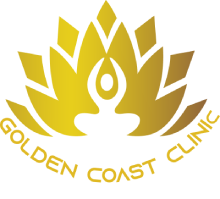Mens Health
What is Men’s Health?
Men’s health encompasses a wide range of physical, mental, and emotional well-being concerns unique to men. While many of the health challenges men face—such as heart disease, diabetes, and high blood pressure—are shared with women, men often experience these conditions differently and may be less likely to seek medical care or adhere to preventive measures. Mental health is another key aspect, as issues like stress, depression, and anxiety are often under diagnosed or overlooked in men, due to societal expectations around masculinity. One of major and often undiagnosed conditions that men face is low testosterone (lowT)
In the men’s world, their certain ailments that are either poorly understood by the health care providers, poorly discussed by the patients and sometimes carry some aspect of taboo. Thankfully, the dark veil of Taboo is being lifted and more men feel more comfortable talking about it. The goal of the physicians and healthcare providers at the Golden Coast Clinic is to bring those issues into the forefront when visiting your doctor. We specifically ask for issues such as fatigue, weight gain, loss of or reduced libido or sexual performance, anxiety, depression, etc. Often men are reluctant to talk about these and sometimes the medical community is reluctant to investigate it or properly understand and treat it.


Hormone Irregularity
It may come as a shock to some, but men also produce hormones. And the fluctuation in our hormone levels affect our personalities. We in fact go through men-o-pause. Who knew right? The difference is that men’s hormonal imbalance is by far less discussed and less understood, therefore, less often discussed with their primary doctor who, in turn, is likely not to understand it well and therefore, treated inadequally, which can lead to further side effects, frustration, and isolation.
Among the many hormonal abnormalities that affect men, the most famous one is testosterone. Called the vitality hormone, testosterone is a hormone that affects pretty much every aspect of a man’s physical and psychological health. And, unfortunately as claimed by the European Male Aging Study (EMAS), the level of testosterone drops by about 0.4% per year starting in our 30’s and that drop can be even more drastic as we gain weight, not exercise, and other factors such as stress. Its effect can be something as subtle as not having enough energy, lack of motivation, redacted libido or a high rate of obesity, diabetes, and heart attacks. Unfortunately, some of these symptoms are often treated by medications specifically designed for symptom relief and not the actual cause.
Patients frequently end up taking medication that often exacerbates these symptoms such as low libido and erectile dysfunction (ED) caused by blood pressure medications, even more weight gain by antidepressants, addiction to anti anxiety medications… the list goes on and on. Therefore, despite your hesitation, shame, embarrassment, however you feel about asking for help, it might ultimately save your life if you sought help from and discussed all your symptoms with a physician who specializes in men’ s health. At Golden Coast Clinic, men’s health is our passion and expertise. If we can not diagnose and treat you appropriately, we will definitely guide you where you can get the care you deserve.
Benefits of Testosterone
Testosterone replacement therapy (TRT) offers significant benefits for men experiencing low testosterone levels, a condition often associated with aging or certain medical conditions. One of the most notable advantages is the improvement in energy levels and overall mood. Low testosterone can lead to fatigue, irritability, and feelings of depression. By restoring hormone levels, TRT can help men regain vitality and mental clarity, contributing to a more positive outlook on life. Additionally, TRT has been shown to improve bone density, reducing the risk of fractures and osteoporosis, which are concerns for aging men.
Another key benefit of testosterone replacement is its impact on physical health and body composition. Men undergoing TRT often experience increased muscle mass and strength, along with a reduction in body fat. This change not only enhances physical performance but also contributes to better metabolic health. Furthermore, TRT can improve libido and sexual performance, addressing issues like low sex drive and erectile dysfunction that are common with declining testosterone levels. When carefully monitored by a healthcare professional, testosterone replacement can significantly enhance the quality of life for men struggling with the symptoms of low testosterone.

What is low Testosterone
Testosterone deficiency, or lowT, occurs when the body does not produce enough of the hormone testosterone, which plays a key role in maintaining vitality, muscle mass, bone density, mood, and sexual function in men. Symptoms of testosterone deficiency can vary widely, but they often include fatigue, depression, anxiety, reduced libido, difficulty concentrating, and a decrease in muscle mass and muscle strength. It is usually caused by aging, starting in our 30s, but other factors such as obesity, chronic illness, taking too many medications, stress, and injury to the testicles can also contribute. We carefully evaluate the patient, perform an extensive H&P and employ various blood testing and imaging modalities to diagnose LowT and delineate it from other conditions that may mimic lowT. Addressing testosterone deficiency is important not just for physical well-being, but also for mental and emotional health, as untreated low testosterone can lead to long-term complications.
What is Testosterone Replacement Therapy (TRT)?
Testosterone replacement therapy (TRT) can offer a range of benefits for men experiencing low testosterone levels. By restoring hormone levels to a more optimal range, TRT can help improve energy levels, reduce fatigue, and enhance overall mood, potentially alleviating symptoms of depression, mood swings and irritability. It can also improve libido and symptoms of erectile function. Additionally, TRT may lead to improvements in muscle mass, strength, and bone density, which can be especially important as men age. Beyond physical improvements, some studies suggest that testosterone therapy may have positive effects on cognitive function and memory. While TRT can be highly effective for managing symptoms of low testosterone, it’s important for individuals to be monitored by a healthcare professional to avoid potential side effects and ensure it’s the right treatment option. At Golden Coast Clinic, Dr. Wahidi brings his extensive knowledge and expertise, as a fellow of American Academy of Anti-Aging Medicine, to effectively treat men with LowT.
